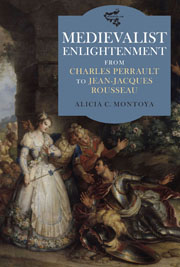Conclusion: Medievalism as an Alternative Modernity
Published online by Cambridge University Press: 05 May 2013
Summary
In a provocative book about “the hidden agenda of modernity”, Stephen Toulmin has argued that modernity entailed a major philosophical shift. This was a shift from the oral to the written, from the particular to the universal, from the local to the general, from the timely to the timeless, and from humanism to rationalism. The new modernity, whose rise Toulmin dates back to the major works of Descartes in the 1630s and 1640s, was marked by the “pursuit of mathematical exactitude and logical rigor, intellectual certainty and moral purity”. While earlier thinkers had questioned the value of abstract theory for concrete human experience, the new philosophy instead sought to describe the world by recourse to timeless, abstract universals. And while older traditions had taken into account the historical embededness and circumstantial character of particular practices, valuing the transitory for itself, the new worldview privileged structures that were perceived as unchanging, overriding historical context or situatedness. Modernity, in short, entailed the replacement of an organicist paradigm by a newer, Cartesian paradigm of rationalist idealism, analytic separation between fields, and between the observing subject and the world that was the object of his observation.
Viewed against Toulmin's account of the making of modernity, the literary medievalism of the early Enlightenment may at first sight appear to be an expression of the older paradigm. Indeed, medievalism too privileged orality, the particular and local, the historically situated, and praxis over abstract theory. Medievalism, according to this reading, offered another path to understanding, which rejected the analytical detachment first proposed by Descartes and imitated throughout the ensuing age of Reason. Medievalism instead foregrounded organicist or contextualized understanding, performativity, affective engagement and notions of continuity, even of simultaneity between past and present.
- Type
- Chapter
- Information
- Medievalist EnlightenmentFrom Charles Perrault to Jean-Jacques Rousseau, pp. 221 - 224Publisher: Boydell & BrewerPrint publication year: 2013

